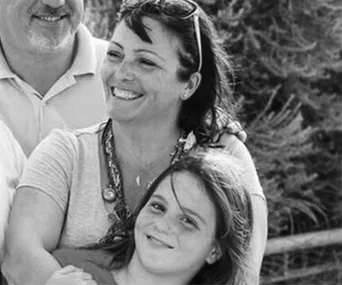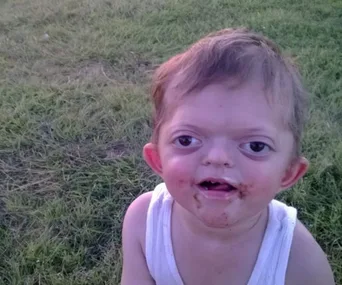There’s no doubt the internet makes everything more convenient these days, but it’s also brought with it a sinister side and, in the wrong hands, it can destroy the lives of innocent people.
An internet troll is someone who insults and picks fights with people online, simply for the sake of it.
They lurk in the shadows, hiding behind fake profiles and their screens so no one can see who they truly are.
But these vicious strangers can cause more harm than just insulting their victims – some have hounded their targets with terrifying threats of rape and death and even convinced them to take their own life.
But who are these trolls dedicating their lives to hurting others? And why do they do it? Take 5 investigates…
Hunting trolls
Award-winning Australian journalist Ginger Gorman was pregnant with her first child when she interviewed Mark Newton and his partner, Peter Truong, for ABC Local Radio’s Drive.
The couple, from Cairns, had battled the system to finally become parents via a surrogate and had a son, aged five at the time Ginger’s segment aired.
Years later, Ginger was shocked to discover Newton and Truong were actually part of a sickening child exploitation ring and had sexually abused their little boy.
They’d even forged documents, listing Mark as the boy’s biological dad, so they could adopt the boy from Russia and bring him to Queensland.

The online world can be sinister…
(Getty)They were convicted of conspiracy to sexually exploit a child and conspiracy to possess child pornography.
Mark was sentenced to 40 years in jail, and Peter to 30 years.
People everywhere voiced their outrage at the pair’s sickening crimes online, and then turned on Ginger for ever supporting them, even though she’d had no idea of their horrific offences at the time of the interview.
Pedophile collaborator, one person tweeted at her.
Your life is over, an anonymous person threatened.
Six days after Mark’s sentencing, Ginger’s husband, Don, discovered one of their family photos on a website under a slogan encouraging people to gas them.
Terrified, Ginger and Don had no idea whether these cruel words were baseless insults or legitimate threats.
Inspired by her traumatic experience, Ginger became an expert on online hate and has written a book, Troll Hunting, about this terrifying phenomenon.
We spoke to her about what she’s learnt…

Ginger’s experience with trolls was dramatic Photo credit: Hilary Wardhough
Q. What causes people to become trolls?
Their motivations vary, but they all want to hurt or upset you.
My research shows many of them had neglectful, violent and damaging upbringings.
They were left alone without an adult supervising their online activity, unleashing torrents of hate on forums like Reddit, 4Chan and Tumblr.
These young people get spat out as hurt, angry individuals who want to harm others via the internet.
Perhaps, more than anything else, trolling is about parenting – or a lack of it.
And the sooner we recognise that, the sooner we’ll solve this problem.
Q. How did you feel when you experienced trolling?
I was terrified for myself and my family’s safety.
What’s more, neither the police nor my employer at the time knew what to do about it.
One of the big myths of trolling is that it’s virtual – just people being ‘mean’ online – and cyberspace is some kind of fairyland. Nothing could be further from the truth.
The Christchurch killer was a predator troll, whose online hatred became a shocking massacre.
We need to stop saying cyberhate targets are “snowflakes” who need to “pull their big girl panties up.”
The harm is very real and can lead to legitimate violence.
Q. How can we better protect people from this type of abuse?
Alongside the law firm Maurice Blackburn, I’ve been pushing for a legislated duty of care – so law enforcement and social media companies are forced to keep us safe.
I think eSafety commissioner Julie Inman Grant’s idea of “safety by design” is a good place to start.
Just like a car company, for example, social media companies must design their products to be safe to start with.
They can’t wait until there’s a crisis like the Christchurch massacre and try to fix it later.
We also need to have some hard conversations as a community.
Misogyny, racism, homophobia and hatred didn’t start online.
They are products of the society we live in.
Q.What can victims of trolling do?
If you find yourself in the middle of a cyberhate event, the fastest way to get help is through the eSafety office, which can force social media companies to take down cyberhate content, specifically that which is directed at children and teens.
The eSafety office’s website (www.esafety.gov.au) has loads of resources too. Parents need to be involved in their kids’ online activity and just like the offline world, teach them online life skills.
Aussie victims
When vegan activist Cara Garrett, 24, removed goats from the Gippy Goat Farm in Gippsland, Vic, she expected to rile up some farmers.
She hadn’t been prepared for months of relentless abuse and death threats.
When a troll tracked down her address, the hatred only got worse.
Your [sic] lucky I don’t live in vic otherwise I’d have your head on a stick!, one person messaged. Trust me when I say your life isn’t safe.
She’s now terrified to leave her home.
Vegan activist Cara Garrett is terrified to leave her home Photo credit: The Age
Model and TV personality Charlotte Dawson battled depression for years before she became the victim of trolls.
Please go hang yourself #diecharlotte, someone wrote to her on Twitter.
Please put your face into a toaster #diecharlotte, another posted.
Driven to breaking point, Charlotte replied to these messages.
You win, she wrote. Hope this ends the misery.
She overdosed but was revived by paramedics.
Charlotte described how ferocious the threats had been.
“It triggered that feeling of helplessness when the trolls got to me. They got the better of me and they won,” she told 60 Minutes.
Less than two years later, she sadly took her life.

Charlotte Dawson
Time for change
Prime Minister Scott Morrison has promised to crack down on trolling.
“What happens online can be just as dangerous as anywhere else,” he said.
The Coalition vowed to increase the maximum sentence for people guilty of using the internet to menace, harass or cause offence, and offenders could be jailed for up to five years.
The Hon Paul Fletcher MP, Minister for Communications, Cyber Safety and the Arts gave us an update: “The Morrison Government is cracking down on online predators and giving Australians the information and support they need to have safe, positive experiences online.

The damage trolls can cause is very real
We’ve established the world’s first Office of the eSafety Commissioner – a dedicated agency that provides practical advice to combat cyber abuse.
Now, those experiencing serious cyberbullying can report it to the eSafety Commissioner to have the material removed from social media sites.
The eSafety Commissioner also has powers to quickly remove intimate images shared online without consent – because all Australians are entitled to the same safety and respect online, as they are offline.”

